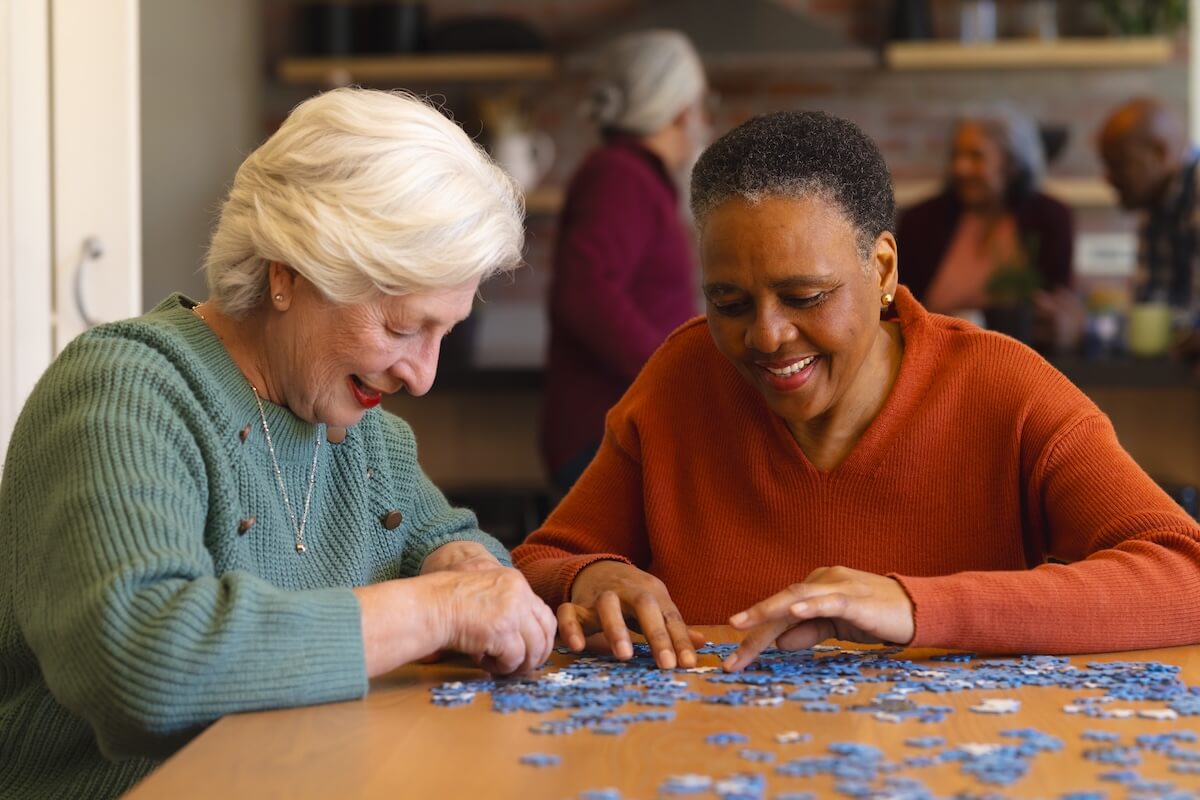Dementia presents unique challenges that impact memory, mood, and daily life, but care isn’t limited to medical treatments alone. Alternative therapies for dementia offer powerful ways to support individuals, focusing on their emotional, social, and cognitive well-being.
These therapies enrich the lives of individuals with dementia through activities that stimulate the mind, foster connection, and promote calmness. They can complement traditional care approaches, providing moments of joy and meaningful engagement. At HearthStone Ciel Senior Living Communities in Florida, we focus on creating opportunities for residents to thrive through personalized, holistic care that honors their individuality.
The Power of Music Therapy
Music holds a unique ability to evoke memories while alleviating anxiety. Individuals with dementia often find comfort and connection through familiar tunes or other forms of musical engagement. Research highlights the potential of music therapy to enhance mood, foster interaction, and ease restlessness.
Families caring for someone with dementia may consider adding music to daily routines. Playing favorite songs or creating calming soundscapes can offer soothing moments and uplift emotional well-being.
Art and Creativity as Expression
Art therapy provides a way for individuals with dementia to express themselves without relying on words. Activities such as painting, drawing, or crafting can help stimulate cognitive function, reduce anxiety, and foster a sense of accomplishment.
Engaging in creative activities allows individuals to focus on the present moment and explore their imagination. These activities can also provide opportunities for families to bond, as creating art together can be a meaningful and enjoyable experience.
The Importance of Sensory Stimulation
Sensory-based programs are particularly effective for individuals with dementia, as they engage touch, smell, sight, and sound in ways that can soothe and ground them. Examples include:
- Aromatherapy: Scents such as lavender, peppermint, or citrus may help promote relaxation or alertness.
- Tactile Engagement: Interacting with textured materials or objects, such as soft fabrics or smooth stones, can be comforting.
- Visual Stimulation: Watching nature scenes or looking at photo albums can evoke positive emotions.
By focusing on the senses, these therapies can help reduce agitation and create moments of calmness.
The Benefits of Gentle Movement
Physical activity is an essential component of holistic care, even for individuals living with dementia. Gentle exercises like chair yoga, stretching, or slow-paced walking can help improve circulation, maintain mobility, and elevate mood.
Incorporating physical activity into daily routines not only benefits physical health but also contributes to better sleep and reduced anxiety. Movement-based activities can be tailored to suit individual abilities, ensuring that they remain safe and enjoyable.
Storytelling and Reminiscence
Sharing personal stories and reflecting on past experiences can help individuals with dementia feel more connected to their identity and family. Family members can play a key role by sharing photo albums, mementos, or cherished items that encourage conversations.
Reminiscence activities can foster a sense of purpose and help individuals recall joyful moments, creating a bridge between the past and the present.
Why Alternative Therapies Matter
While there is no cure for dementia, alternative therapies for dementia can make a meaningful difference in the lives of those affected. These approaches focus on nurturing the whole person—emotionally, socially, and cognitively—providing opportunities for connection and calm.
Throughout our senior living communities in Florida, alternative therapies are personalized to align with each individual’s preferences and abilities, ensuring that every resident feels valued and supported.
Exploring Memory Care Options for Your Family Member
If you’re exploring memory care options, it’s important to choose a community that supports a holistic approach to well-being. HearthStone Ciel Senior Living Communities prioritizes the individuality of each resident, offering personalized care that encompasses emotional, physical, and cognitive health.
While transitioning to memory care can be a difficult decision, it can also provide your family member with the structure, safety, and engagement they need to thrive. To learn more about memory care or explore our available resources, contact us today.





